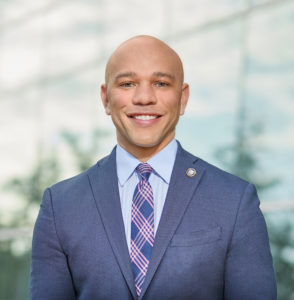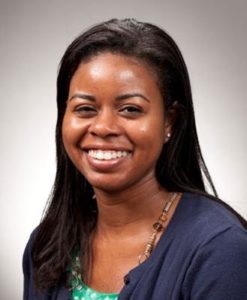HSC webinar addresses unprecedented time in nursing leadership history
June 15, 2020 • Uncategorized
The world is having some important conversations right now.
The burden of COVID-19, especially on communities of color, has been heavy over the last several months. Health and social inequities, racism and basic human rights have taken center stage as problems that all citizens must address.
In recent weeks, one of the leading voices standing for change has been the American Nurses Association (ANA).
The month of May has typically served as a time to honor the many contributions of these healthcare professionals and to recognize the mother of modern nursing, Florence Nightingale.

200 years from her birth, nurses are today following in her bold and compassionate footsteps to stand united in advocating for a new, healthier, more just and inclusive future for all communities and within the profession.
Nurses from around the U.S. recently joined HSC faculty leaders and ANA President Ernest J. Grant, PhD, RN, FAAN, for a National Nurses Month webinar focused on leading change and advancing health during the current, unprecedented times.
HSC’s MHA Online and MPH Online faculty hosted the virtual educational event, opened by the University’s Vice Provost of Academic Innovation, Jessica Rangel, MSL, BSN.
Special guest Dr. Grant shared important national nursing perspectives and words of support for all the efforts of nurses, in both everyday situations and today’s new normal.

Stephan Davis, DNP, MHSA, FACHE, HSC School of Public Health Assistant Professor and MHA Program Director, who has taught seminars for nurse executives across the country, and Kayla Fair, DrPH, MPH, BSN, RN, HSC Assistant Professor of Public Health Education, served as lead facilitators for the event.
Drs. Davis and Fair addressed the importance of nursing leadership in this pivotal moment, along with the various educational and professional pathways available to help nurses prepare for new challenges.
Discussions focused on essential competencies for nursing leadership and public health; career planning and development; individual talents and strengths; advanced academic degrees; the importance of self-awareness; and developing personal mission, vision and values statements.
“Given the increasing complexity of the healthcare system, nurses are being called to lead, but that responsibility may not always come with the education and training needed to support their work,” Dr. Davis said. “One of the goals of this program was to give nurses information, examples and a view into different educational and professional pathways that can help them prepare.”
Supporting and advocating for enhanced ethnic and gender diversity in the workforce was also an important focus of the webinar.
“At this critical time in our nation, nurses have a responsibility to use our voices to call for change,” Dr. Grant said. “This pivotal moment calls for each of us to ask ourselves which side of history we want to be on and the legacy we will pass on to future generations.”
Being able to provide this online educational experience for nurses, Dr. Davis said, was a great way to connect with the profession, engage in meaningful, national dialogue and offer what is planned to be just the beginning of more HSC-sponsored healthcare leadership workshops.
“At a time when there are so many challenges in healthcare and our world,” Dr. Davis said, “investing in leadership development opportunities for members of the most trusted profession in America is very important to improving the health of the public.”


Social media